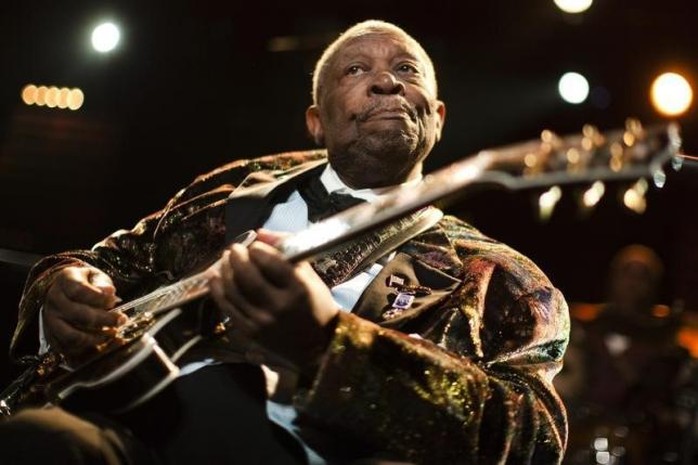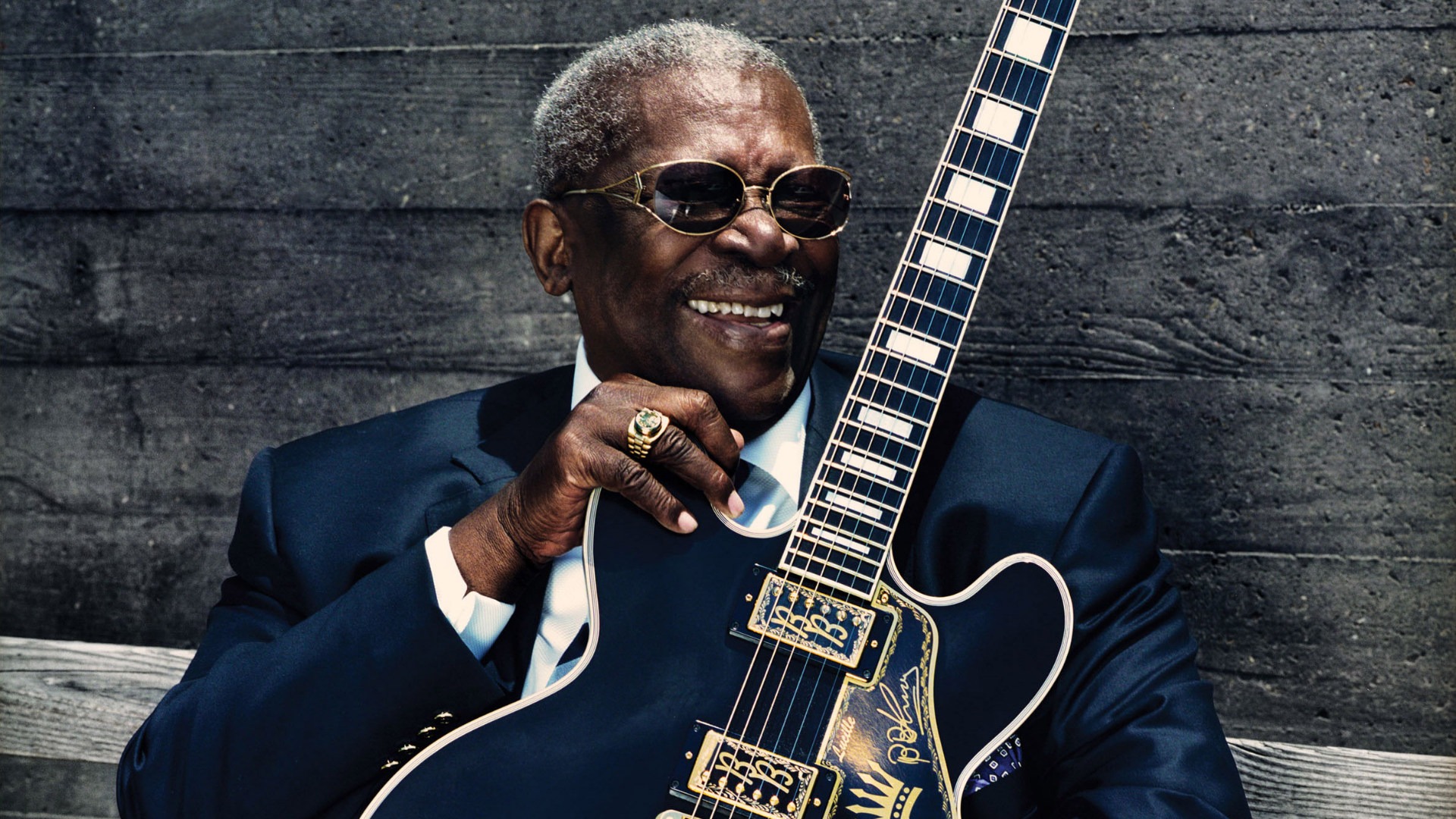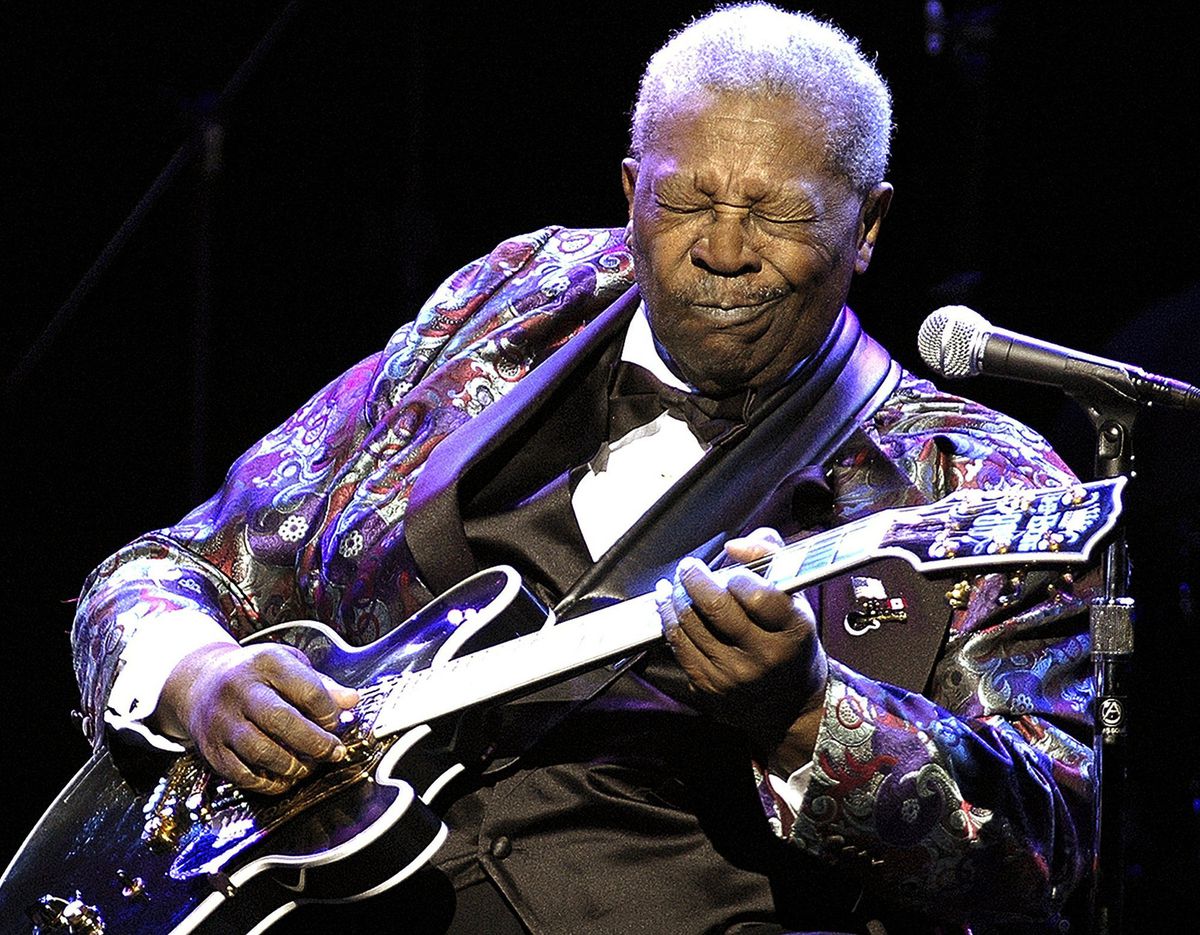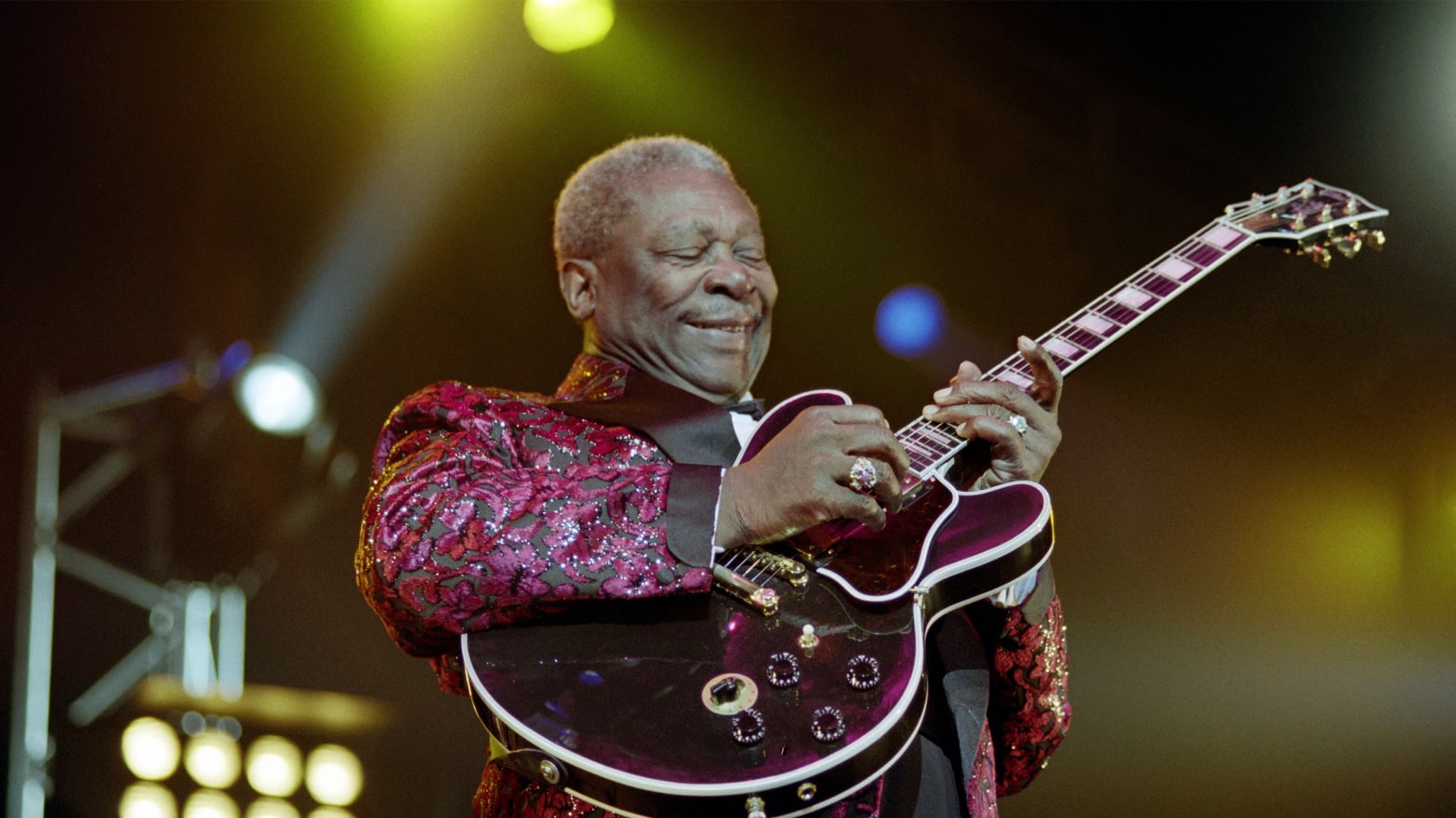“Why I Sing the Blues”- B.B. King

“Why I Sing the Blues” by B.B. King: A Personal and Cultural Anthem
B.B. King, widely regarded as one of the greatest blues musicians of all time, left an indelible mark on music history through his soulful guitar playing and emotive voice. Among his many celebrated works, “Why I Sing the Blues,” released in 1969, stands as a powerful and deeply personal anthem that articulates both the hardships of his own life and the broader struggles faced by African Americans throughout history. The song is a poignant reminder of the pain and suffering that gave birth to the blues as a genre, while also expressing a sense of resilience and determination.
“Why I Sing the Blues” is more than just a song—it is a narrative that captures the essence of the blues. It tells the story of hardship, poverty, and racial oppression, woven together with King’s signature blend of guitar mastery and vocal power. The song opens with a reflective tone, as King sings, “Everybody wants to know why I sing the blues / Yes, I’ve been around a long time / I really have paid my dues.” This opening sets the stage for what is essentially a personal testimony, where King draws upon his own experiences and those of his community to explain why the blues has been such an integral part of his life.

One of the most compelling aspects of “Why I Sing the Blues” is the way in which King uses the song to connect his personal struggles to the collective experiences of African Americans. The lyrics recount the historical injustices of slavery, segregation, and systemic racism, painting a vivid picture of the long and painful journey endured by generations of African Americans. King sings, “I’ve laid in a ghetto flat / Cold and numb / I heard the rats tell the bedbugs / To give the roaches some.” These lines evoke the harsh realities of poverty, adding a visceral layer to the song’s emotional depth.
King’s guitar playing on “Why I Sing the Blues” is another highlight of the song, demonstrating his extraordinary ability to convey emotion through his instrument. Known for his distinctive “singing” guitar style, King’s playing is both mournful and expressive, echoing the sentiments of the lyrics. His signature vibrato, bending of notes, and precise phrasing all contribute to the song’s emotional impact, making it clear why he was often referred to as the “King of the Blues.” The interplay between his voice and guitar creates a dynamic dialogue, where each note and phrase seems to answer the other, reinforcing the song’s message of sorrow and resilience.
In the broader context of the blues genre, “Why I Sing the Blues” serves as both a reflection of the history of the blues and an acknowledgment of its roots in the African American experience. The blues originated in the Mississippi Delta in the late 19th century, born out of the spirituals, work songs, and field hollers of enslaved African Americans. As these early forms of music evolved into the blues, they became a way for African Americans to express their pain, longing, and hope in the face of oppression. B.B. King, who grew up in the Mississippi Delta during the era of Jim Crow, was deeply influenced by this tradition, and “Why I Sing the Blues” is his tribute to the legacy of the blues and the struggles that inspired it.

The song also serves as a statement of pride. Despite the hardships King recounts in the lyrics, there is a sense of defiance and dignity that runs throughout the song. By singing the blues, King is not only expressing his pain but also reclaiming his own story and the story of his people. The blues, in this sense, becomes an act of resistance—a way of confronting injustice and asserting one’s humanity in the face of dehumanization. This duality of sorrow and strength is what gives “Why I Sing the Blues” its enduring power.
“Why I Sing the Blues” also resonates with listeners on a universal level. While it is deeply rooted in African American history, its themes of suffering, resilience, and the search for meaning are experiences that transcend race and culture. King’s ability to communicate these themes through his music has made him an international figure, beloved by audiences around the world. His music speaks to the shared human experience of overcoming adversity, and “Why I Sing the Blues” is a testament to the power of music to heal and uplift.

The song has since become one of King’s signature pieces, regularly performed in his live shows and celebrated by fans and critics alike. It stands as a reminder of the deep connection between music and the social and political realities from which it emerges. For King, the blues was not just a genre of music but a way of life—a means of coping with and making sense of the world’s injustices. “Why I Sing the Blues” is his way of sharing that understanding with his audience, inviting them to feel both the sorrow and the joy that comes from singing the blues.
In conclusion, B.B. King’s “Why I Sing the Blues” is more than just a song—it is a powerful narrative that encapsulates the essence of the blues as both a musical genre and a reflection of the African American experience. Through his evocative lyrics and masterful guitar work, King tells a story of hardship, resilience, and pride that resonates with listeners on a deep emotional level. The song stands as a tribute to the history of the blues and the struggles that gave birth to it, while also serving as a testament to King’s own journey and the enduring power of music to express the human condition. Whether experienced as a personal reflection or a cultural statement, “Why I Sing the Blues” remains one of B.B. King’s most iconic and enduring works.












